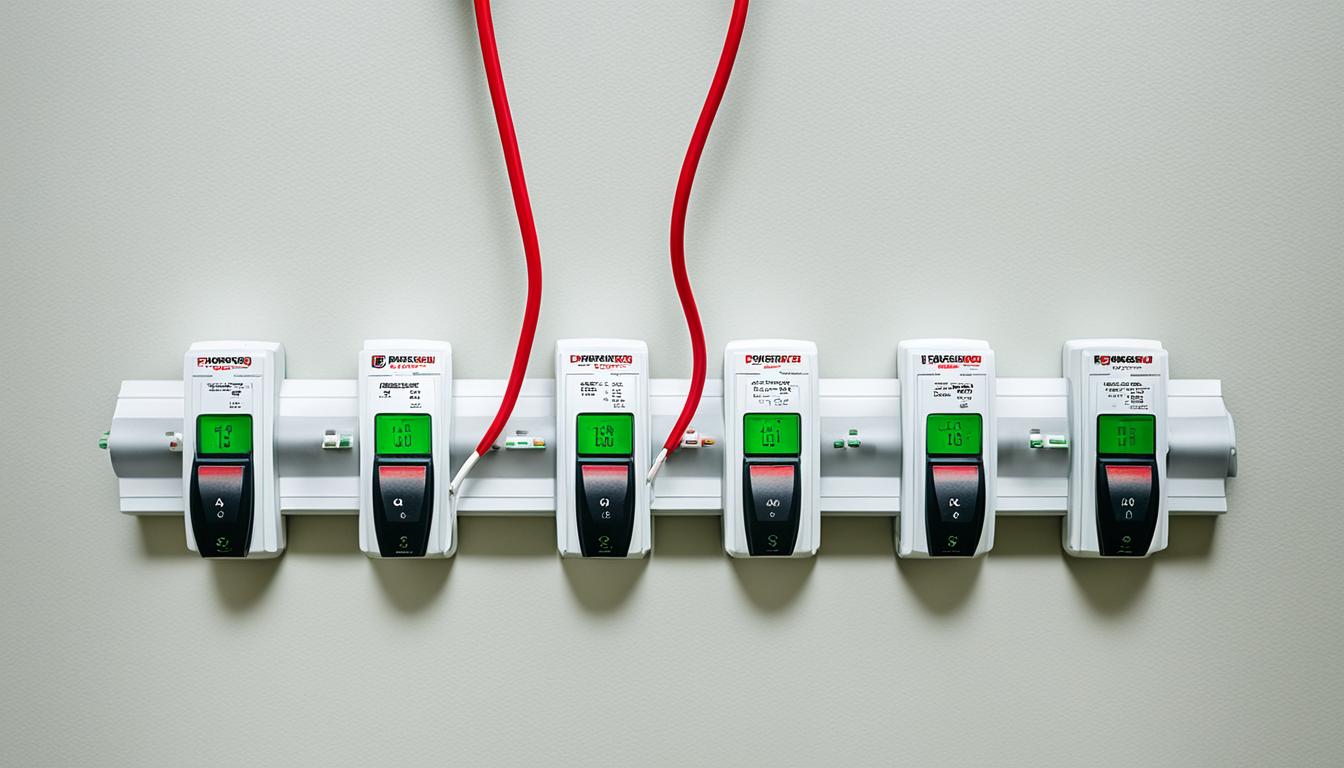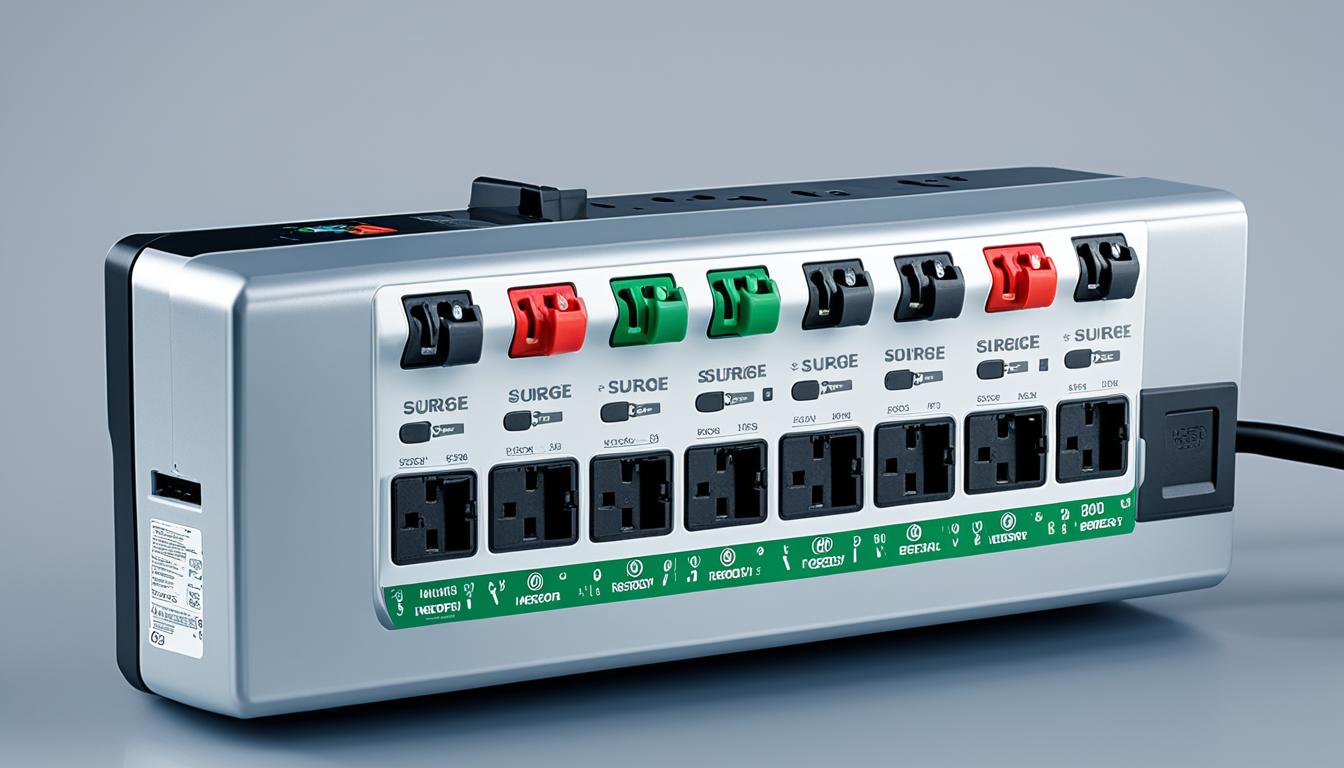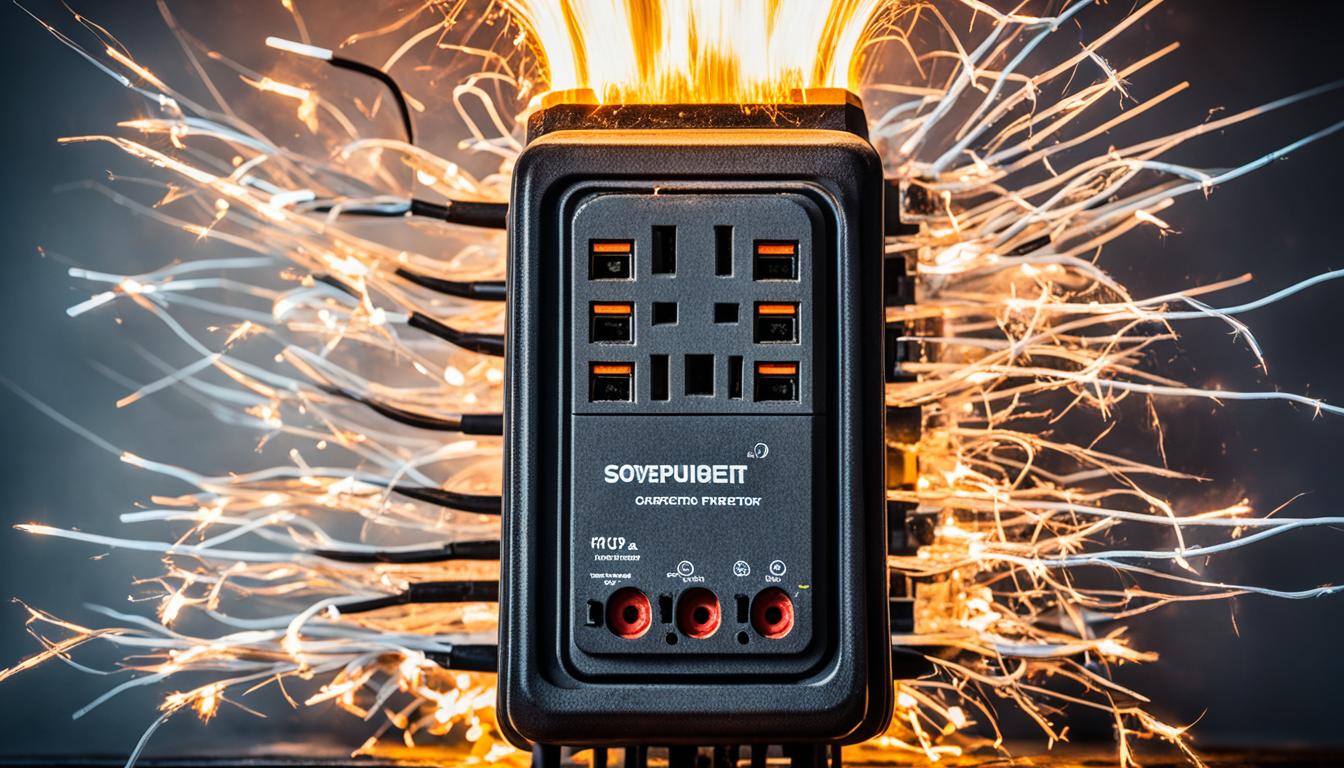When it comes to convenience, plugging your fridge into an extension cord may seem like a quick solution. However, it’s important to consider the safety implications before taking this step. Refrigerators require a significant amount of power to operate, and extension cords may not be designed to handle such high electrical loads. This can lead to overheating, voltage drop, and overloading of the circuit, posing fire hazards and risking appliance malfunctions. To ensure both the optimal performance and safety of your fridge, it is crucial to follow best practices and prioritize electrical safety.
Key Takeaways:
- Plugging a fridge into an extension cord can pose safety risks due to the high power demands of refrigerators.
- Extension cords may not be designed to handle the continuous power draw of a refrigerator, leading to overheating and potential damage.
- Voltage drop can occur when using extension cords with refrigerators, affecting performance and lifespan.
- It is recommended to prioritize safety by plugging your fridge directly into a properly grounded outlet.
- If using an extension cord is unavoidable, choose a heavy-duty cord specifically designed for appliances and follow manufacturer’s guidelines.
Understanding the Risks
When plugging your fridge into an extension cord, it’s crucial to be aware of the potential risks involved. Extension cords may not have the capacity to handle the continuous power draw of a refrigerator, which can lead to overheating and potential damage. This poses serious dangers to both the appliance and your home.
Not only can using an extension cord with your fridge compromise its performance, but it can also affect its lifespan. Voltage drop is another concern that arises when relying on an extension cord. This can lead to fluctuations in power supply, affecting the overall efficiency of your refrigerator.
Furthermore, using an extension cord to plug in multiple appliances can overload the circuit, increasing the risk of electrical fires. With the high power demands of refrigerators, it’s essential to take precautions and avoid potential hazards.
“Using an extension cord with your fridge may seem convenient, but it can have serious consequences. It’s important to prioritize safety and understand the risks involved.”
To illustrate the potential hazards of using an extension cord for your refrigerator, refer to the following table:
| Risks | Consequences |
|---|---|
| Overheating | Increased chance of fire and appliance damage |
| Voltage Drop | Reduced performance and lifespan of the fridge |
| Overloading the Circuit | Higher risk of electrical fires |
As you can see, plugging your fridge into an extension cord poses significant risks that can be best avoided. It is essential to prioritize safety and opt for safer alternatives to ensure the longevity and functionality of your refrigerator.
Best Practices for Refrigerator Power
To ensure both the optimal performance and safety of your refrigerator, it is recommended to follow these best practices:
- Plug your fridge directly into a properly grounded outlet: Whenever possible, avoid using extension cords and instead connect your refrigerator directly to a dedicated, properly grounded outlet. This ensures a stable power source and reduces the risk of overheating or electrical malfunctions.
- Consider installing a new outlet: If the nearest outlet is not conveniently located to plug in your fridge directly, it may be worth considering having a qualified electrician install a new outlet closer to the appliance. This eliminates the need for an extension cord and ensures the fridge has its own dedicated power source.
- Choose a heavy-duty extension cord: If using an extension cord is unavoidable, ensure you use a heavy-duty cord specifically designed for appliances. These cords are built to handle high electrical loads and provide sufficient power to your refrigerator without overheating or voltage drop issues. Check the cord’s gauge and length to ensure it meets your fridge’s power requirements.
- Refer to manufacturer’s guidelines: Always follow the manufacturer’s guidelines for electrical connections and power requirements. Every fridge may have specific instructions or recommendations regarding the use of extension cords. Adhering to these guidelines can help maintain the performance and longevity of your appliance.
- Perform regular maintenance: To reduce the risk of overheating and electrical hazards, it is important to perform regular maintenance on your refrigerator. Clean the coils, check the electrical cord for any signs of damage, and ensure proper ventilation around the appliance. Regular maintenance can help prevent electrical issues and prolong the lifespan of your fridge.
By following these best practices, you can ensure that your refrigerator has a proper power source and operates safely and efficiently.
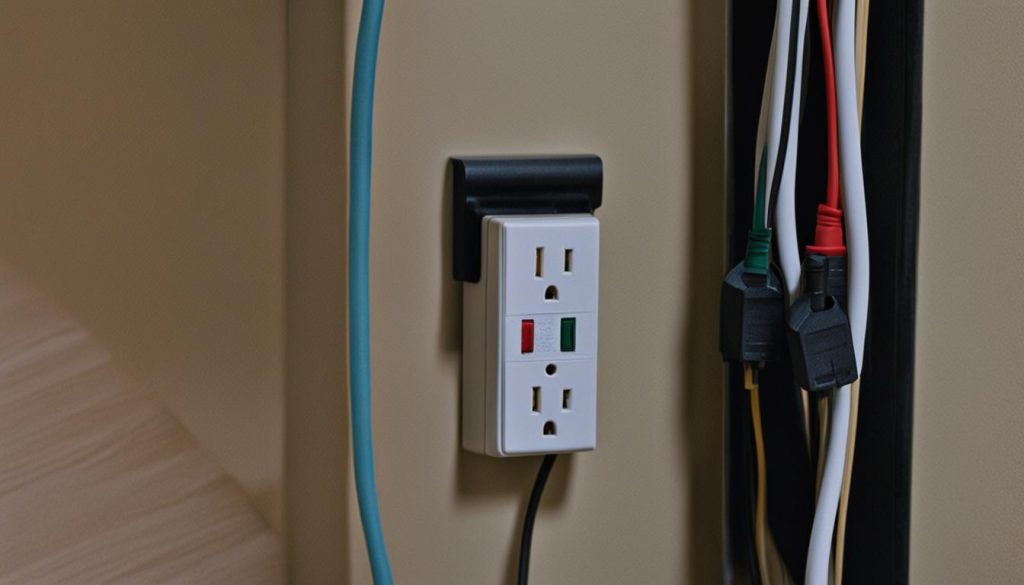
Reasons to Avoid Using Extension Cords
When it comes to plugging your fridge, using an extension cord may seem like a convenient solution. However, it’s important to understand the potential dangers and why it’s best to avoid using extension cords for your refrigerator.
1. Overheating and Fire Hazards: Extension cords are not designed to handle the high power demands of refrigerators. Plugging your fridge into an extension cord can lead to overheating, which increases the risk of fire hazards in your home. It’s crucial to prioritize the safety of your household and avoid these potentially dangerous situations.
2. Not Meant for Long-Term Use: Another reason to steer clear of using extension cords with refrigerators is that they are not intended for long-term use. Continuous use of an extension cord can cause wear and tear, potentially resulting in electrical faults or failures. Remember, your fridge is a long-term investment, and it’s important to provide it with a reliable and dedicated power source.
3. Clutter and Tripping Hazards: Using extension cords for your appliances, including your refrigerator, can create unnecessary clutter in your living space. Tripping over cords can lead to accidents and injuries, posing a significant risk to you and your loved ones. Keep your home safe and organized by avoiding the use of extension cords wherever possible.
“Plugging your fridge into an extension cord can lead to overheating, which increases the risk of fire hazards.”
Considering these factors, it’s clear that using an extension cord for your refrigerator is not worth the potential risks. Instead, prioritize safety and invest in the proper setup for your fridge. This ensures both the optimal performance of your appliance and the well-being of your household.
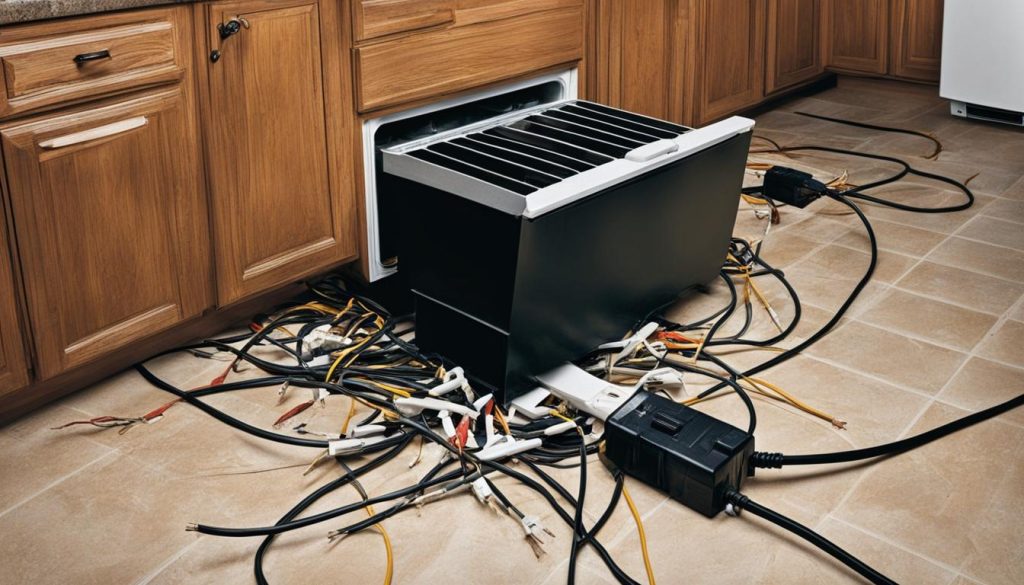
Conclusion: Prioritize Safety And Best Practices
When it comes to plugging your fridge into an electrical source, prioritizing safety should always be your top concern. While using an extension cord may seem convenient, it can pose significant risks to both your appliance and your home. Extension cords are not designed to handle the power demands of refrigerators, which can lead to overheating, fire hazards, and appliance malfunctions.
To ensure the optimal performance and safety of your fridge, it is strongly recommended to connect it directly to a properly grounded outlet. If the outlet is not accessible, consider hiring a qualified electrician to install a new outlet closer to your refrigerator.
If using an extension cord is unavoidable, choose a heavy-duty cord specifically designed for appliances. Make sure it has the appropriate gauge and length to handle the power requirements of your refrigerator. Always refer to the manufacturer’s guidelines for electrical connections, and perform regular maintenance on your fridge to prevent overheating.
By following these best practices and prioritizing safety, you can ensure both the functionality and longevity of your refrigerator. Remember, when it comes to plugging your fridge, it’s better to be safe than sorry.
FAQ
Can I plug my fridge into an extension cord?
It is not recommended to plug your fridge into an extension cord due to safety concerns. Extension cords may not be designed to handle the high power demands of refrigerators, which can lead to overheating and potential damage. It is best to connect your fridge directly to a properly grounded outlet whenever possible.
What are the risks of plugging a fridge into an extension cord?
When using an extension cord for your refrigerator, there are several risks to consider. These include overheating, voltage drop, and overloading of the circuit, which can lead to fire hazards and appliance malfunctions. It is important to be aware of these risks and prioritize the safety of your fridge.
What are the best practices for refrigerator power?
To ensure both optimal performance and safety, it is recommended to plug your fridge directly into a properly grounded outlet. If this is not possible, consider having a qualified electrician install a new outlet closer to the refrigerator. If using an extension cord is unavoidable, choose a heavy-duty cord specifically designed for appliances and follow the manufacturer’s guidelines for electrical connections. Regular maintenance of your fridge is also important to reduce the risk of overheating.
Why should I avoid using extension cords for my fridge?
There are several reasons why it is not recommended to use an extension cord for your refrigerator. Extension cords are not designed to handle the high power demands of refrigerators, which can result in overheating and fire hazards. Additionally, extension cords are not meant for long-term use and may need to be replaced over time. Using extension cords also creates additional clutter and can pose tripping hazards in your home.
How should I prioritize safety and best practices when plugging in my fridge?
It is crucial to prioritize safety when plugging in your fridge. This can be achieved by connecting the refrigerator directly to a properly grounded outlet or by installing a new outlet closer to the appliance. Following best practices, such as using a suitable heavy-duty cord and adhering to manufacturer’s guidelines for electrical connections, can help ensure both the functionality and safety of your refrigerator.
